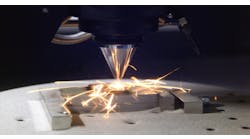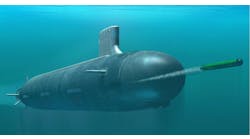GE Aerospace reported it is working with NASA to test a hybrid electric demonstrator engine with NASA that will embed electric motor/generators in a high-bypass commercial turbofan, to supplement power during different phases of operation. “We’re advancing state-of-the-art propulsion systems for next generation commercial aircraft with an important aim — to drive industry efforts to improve efficiency and reduce emissions compared to today’s aircraft engines,” according to Arjan Hegeman, general manager of future of flight technologies at GE Aerospace.
The developer explained that embedded electric motor/generators will optimize engine performance by creating a system that can work with or without energy storage devises, e.g., batteries. This could hasten hybrid electric power for commercial aviation, even before energy storage functions are fully matured.
The research includes modifying a GE Passport engine by inserting hybrid electric components and testing its performance through NASA’s Hybrid Thermally Efficient Core (HyTEC) project.
The NASA project is one several efforts by GE Aerospace to establish technologies for more electric aircraft engines, and is being advanced as part of the Revolutionary Innovation for Sustainable Engines (RISE) program that is being led by GE’s joint venture, CFM International.
The GE Passport engine used in the tests is a turbofan unit developed for large business jets, including the Bombardier Global 7500 and 8000. It’s sometimes described as a smaller version of the CFM LEAP engine, produced by the GE Aerospace joint venture for the Airbus A320neo and Boeing 737 MAX narrow-body aircraft.
According to GE, the initial, “component-level” testing of electric motor/generators and power electronics has been completed; as has been a baseline test of the Passport engine, to characterize performance before hybrid electric components are added.
Both test programs were conducted at GE Aerospace operations in Ohio. The results of the component and baseline engine tests are being used to evaluate and update models in preparation for a ground test.






